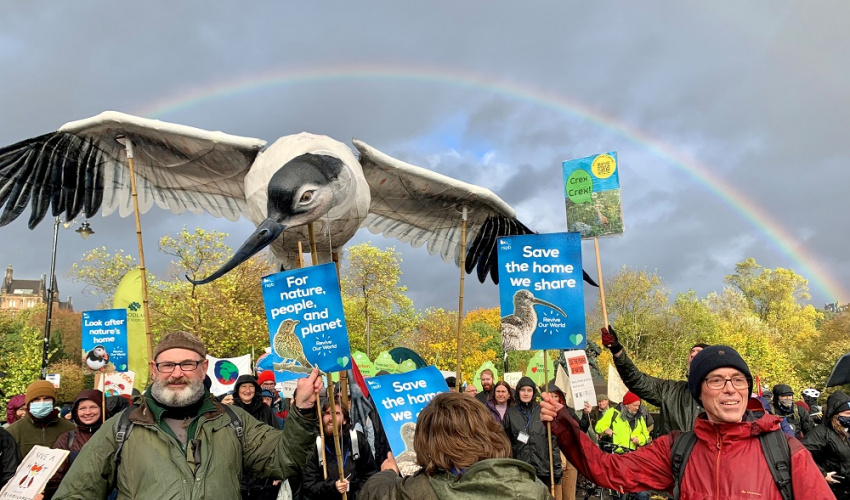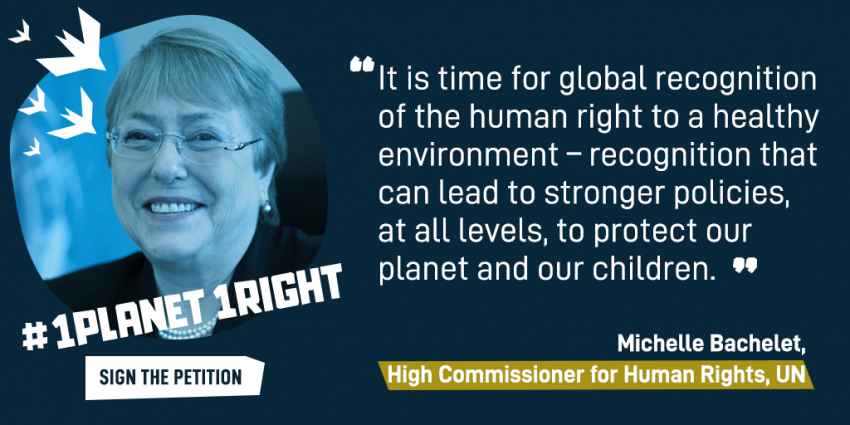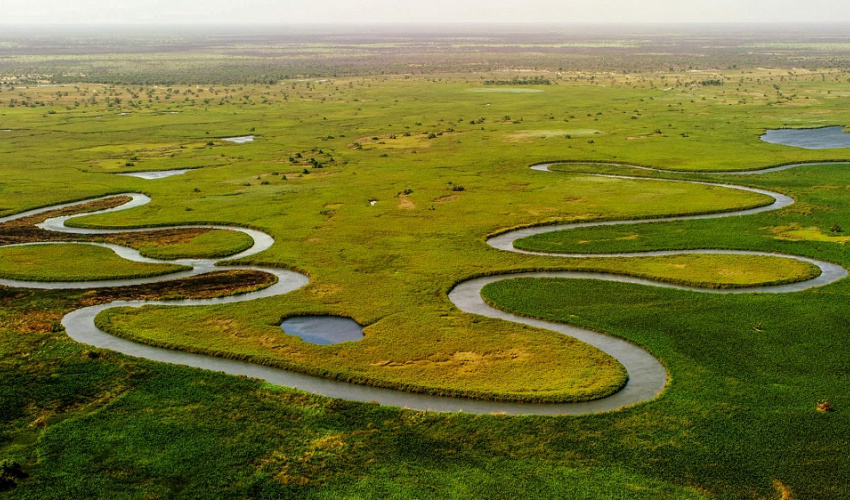Human Rights Day is observed every year on 10 December: the day in 1948 that the United Nations General Assembly (UNGA) adopted the Universal Declaration of Human Rights (UDHR). The UDHR is a milestone document, which proclaims the inalienable rights to which everyone is entitled as a human being. But it has an important gap, one that has become increasingly apparent; the fulfillment of human rights depends on a healthy environment. Since 1948, human development has become increasingly unsustainable. Despite growing awareness and global policy to drive sustainable development, environmental degradation continues largely unchecked with negative impacts on people, in particular the poorest and most vulnerable.
There was a huge groundswell of support for this right from government, business and civil society voiced across the recent IUCN World Conservation Congress.
International consensus has grown around the need for the UN to establish a new human right to a healthy environment. There was a huge groundswell of support for this right from government, business and civil society voiced in events across the recent IUCN World Conservation Congress, including from the UN Special Rapporteur on Environment and Human Rights, David Boyd, an invited plenary speaker. This was formalised in Motion 40 (now WCC-2020-Res-116) to Develop and implement a transformational and effective post-2020 global biodiversity framework, “NOTING the increasing calls to both recognise a right to a safe, clean, healthy and sustainable environment in the UN Human Rights Council and to reflect this in the post-2020 global biodiversity framework,” and in the Marseille Manifesto which states: “The United Nations is requested to show leadership by recognising and implementing the right to a safe, clean, healthy and sustainable environment.”
Global recognition of the link between human well-being and a healthy environment marks a monumental milestone in efforts to deliver on the promises of the Sustainable Development Goals.
In a landmark decision, the resolution on the right to a clean, healthy and sustainable environment proposed by five Human Rights Council Member States - Costa Rica, the Maldives, Morocco, Slovenia and Switzerland - was adopted on 8 October 2021 at the 48th UN Human Rights Council session in Geneva with overwhelming support (43 votes in favour, 4 abstentions, and none against). This global recognition of the link between human well-being and a healthy environment marks a monumental milestone in global efforts to deliver on the promises of the Sustainable Development Goals, and towards creating an equitable, carbon-neutral and nature-positive world for all.







Añadir nuevo comentario